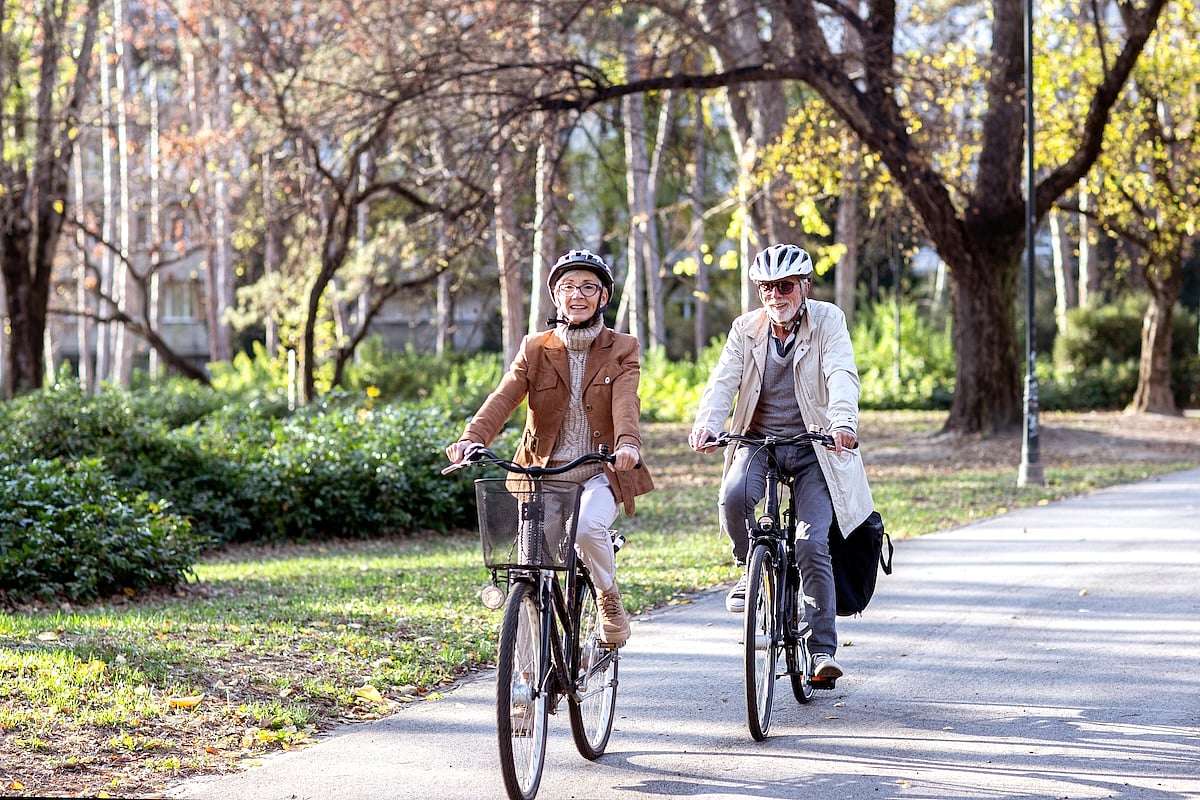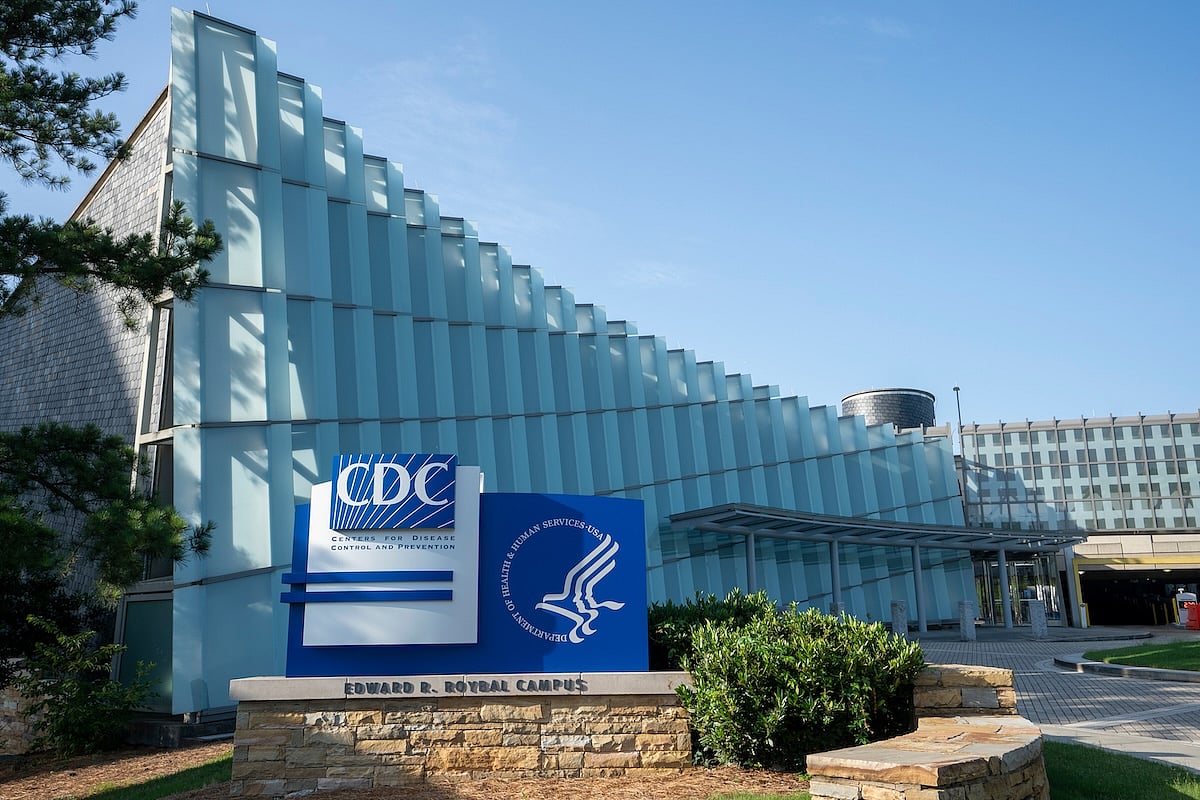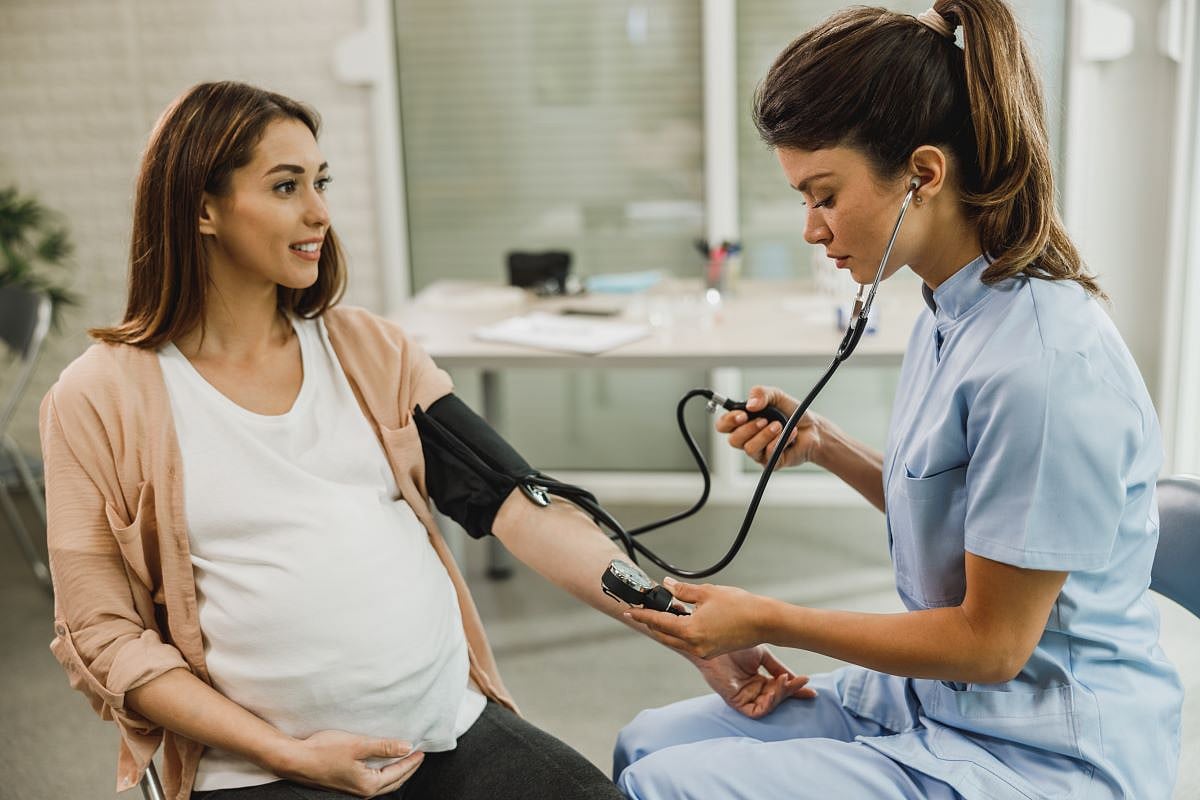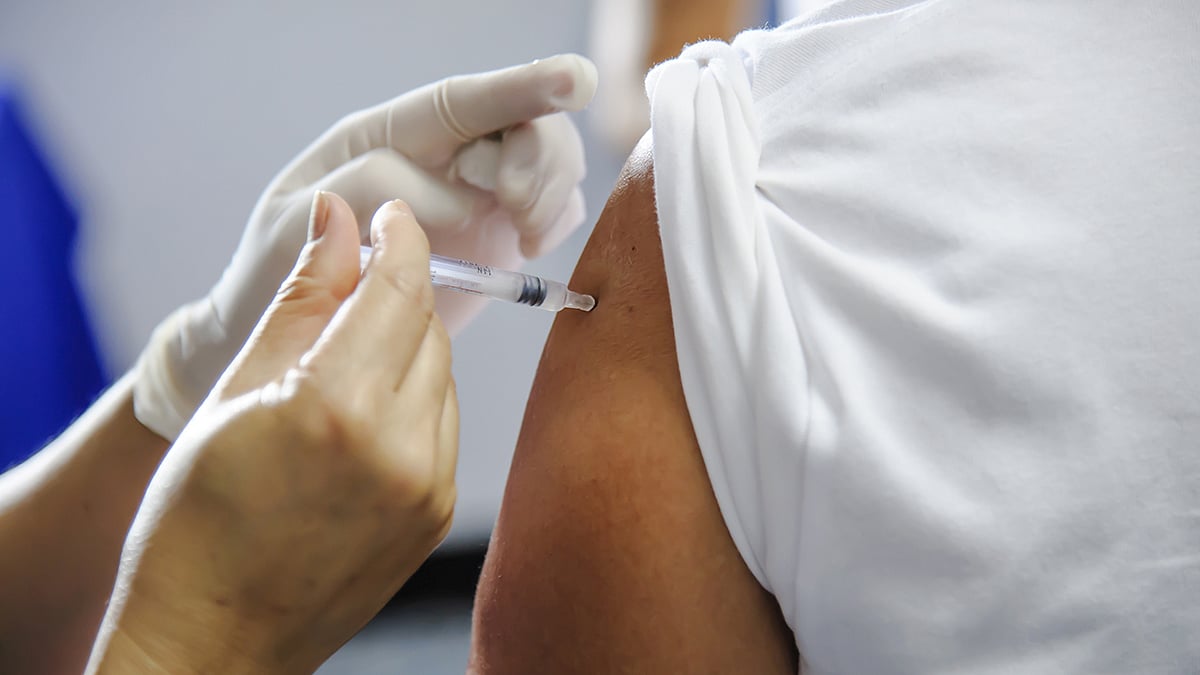Get Healthy!
Staying informed is also a great way to stay healthy. Keep up-to-date with all the latest health news here.
13 Feb
GLP-1 Weight-Loss Drugs Tied to Increased Risk of Hair Loss
A large, new study finds adults who use GLP-1 medications face higher odds of a common form of hair shedding, as well as male or female pattern baldness.
12 Feb
Most Baby Foods Packed With Sugar, Salt, and Additives, Study Finds
A review of 651 infant and toddler foods sold across the U.S. finds nearly three-quarters fit the definition of ultra-processed and contain high levels of sugar, salt and additives.
11 Feb
Study Finds Dozens of Potentially Hazardous Chemicals in Hair Extensions
Researchers tested 43 hair extension products and found 169 different chemicals, including dozens that have been linked to cancer, hormone disruption, developmental problems and immune disorders.
Why Chemo Causes Unwanted Side Effects And How To Treat Them
SUNDAY, Feb. 15, 2026 (HealthDay News) — Chemotherapy is one of the most common weapons in the cancer-treatment arsenal, but its side effects are well known.
Hair loss. Nausea and vomiting. Mouth sores. Fatigue.
The side effects a person with cancer may have are affected by the type of cancer being treated and the chemotherapy ...
- Carole Tanzer Miller HealthDay Reporter
- |
- February 15, 2026
- |
- Full Page
How to Nurture A Healthy Relationship 365 Days a Year
SATURDAY, Feb. 14, 2026 (HealthDay News) — The focus on Valentine’s Day is, as The Beatles famously crooned, "love is all you need."
But staying in love and growing together requires work and commitment.
"There are also some characteristics that most healthy relationships have in common," writes a team led by Lawren...
- Carole Tanzer Miller HealthDay Reporter
- |
- February 14, 2026
- |
- Full Page
Top HHS Officials Out as White House Shores up Midterm Election Strategy
FRIDAY, Feb. 13, 2025 (HealthDay News) — U.S. Health Secretary Robert F. Kennedy Jr.’s second-in-command is apparently on his way out as part of a restructuring ahead of midterm elections, CNN reported.
Deputy Secretary Jim O’Neill is expected to leave soon, after struggling to find his fit within the depar...
- Carole Tanzer Miller HealthDay Reporter
- |
- February 13, 2026
- |
- Full Page
Thousands of NYC Nurses Return To Work, but One Major Strike Goes On
FRIDAY, Feb. 13, 2026 (HealthDay News) — A monthlong nurses strike in New York City is coming to an end, but not for everyone.
Nurses at Montefiore and Mount Sinai hospitals voted to approve new three-year contracts, clearing the way for about 10,500 nurses to return to work in the coming days.
But nurses at NewYork-Presb...
- I. Edwards HealthDay Reporter
- |
- February 13, 2026
- |
- Full Page
States Sue To Block $600 Million Cut to Public Health Funds
FRIDAY, Feb. 13, 2026 (HealthDay News) — Four states are suing to stop the Trump administration from rescinding hundreds of millions of dollars already set aside for public health programs.
California, Colorado, Illinois and Minnesota filed suit Wednesday after the U.S. Department of Health and Human Services (HHS) said it planned to...
- I. Edwards HealthDay Reporter
- |
- February 13, 2026
- |
- Full Page
Trump Scuttles Key Climate Finding Used to Control Greenhouse Gases
FRIDAY, Feb. 13, 2026 (HealthDay News) — President Donald Trump is undoing a long-standing scientific finding that says climate change threatens human health and the environment.
The move strips the federal government of much of its power to limit greenhouse gas pollution.
The decision targets the Environmental Protection Agenc...
- I. Edwards HealthDay Reporter
- |
- February 13, 2026
- |
- Full Page
Swap TV For Activity To Ward Off Depression, Study Suggests
FRIDAY, Feb. 13, 2026 (HealthDay News) — Want an easy way to head off the blues?
Stash the TV remote.
Dutch researchers who followed more than 65,000 adults for four years found that replacing 60 minutes of TV with something more active cut depression risk by 11% — and nearly 19% in middle-aged adults.
And more is e...
- Carole Tanzer Miller HealthDay Reporter
- |
- February 13, 2026
- |
- Full Page
One Simple Step Can Reduce Risk Of Preeclampsia, Study Says
FRIDAY, Feb. 13, 2026 (HealthDay News) — Doctors could reduce rates of a dangerous high blood pressure condition in pregnancy by taking one simple step, a new study says.
Prescribing daily aspirin to all pregnant women at their first prenatal visit was associated with an overall reduction in cases of severe preeclampsia, according to...
- Dennis Thompson HealthDay Reporter
- |
- February 13, 2026
- |
- Full Page
Tween Screen Addiction Linked To Mental Health Problems, Substance Use
FRIDAY, Feb. 13, 2026 (HealthDay News) — Tweens addicted to the digital world — mobile phones, social media, video games — are more likely to develop mental health and behavioral problems as teenagers, a new study says.
Depression, sleep problems, ADHD, substance use, suicidal behaviors and conduct problems all were more ...
- Dennis Thompson HealthDay Reporter
- |
- February 13, 2026
- |
- Full Page
Physical Inactivity Drives Diabetes Complications, Study Finds
FRIDAY, Feb. 13, 2026 (HealthDay News) — A lack of exercise drives a good portion of the health problems faced by people with type 2 diabetes, a new study says.
Up to 10% of diabetes complications like stroke, heart failure, heart disease and vision loss can be attributed to sedentary behavior, researchers reported in the Jo...
- Dennis Thompson HealthDay Reporter
- |
- February 13, 2026
- |
- Full Page
Traveling To The Big City For Cancer Care? That Might Not Be Necessary For All Rural Patients, Study Says
FRIDAY, Feb. 13, 2026 (HealthDay News) — Rural cancer patients often travel long distances to seek treatment at major medical centers, but new research suggests those journeys might not be necessary.
Lung or colon cancer patients treated at a local hospital had similar death rates and surgical outcomes to those who traveled to big-ci...
- Dennis Thompson HealthDay Reporter
- |
- February 13, 2026
- |
- Full Page
Food Choice Matters More Than 'Low-Carb' or 'Low-Fat' Labels
FRIDAY, Feb. 13, 2026 (HealthDay News) — For years, the world of nutrition has been a battlefield between two camps: Those who swear by low-carb living and those who stick to low-fat diets.
But a massive new study suggests that the winner of this debate isn't a specific macronutrient ratio, but rather the quality of the food on your ...
- Deanna Neff HealthDay Reporter
- |
- February 13, 2026
- |
- Full Page
Toxic Chemicals Found in Popular Hair Extensions
FRIDAY, Feb. 13, 2026 (HealthDay News) — For many, hair extensions are a staple of style and convenience, but they may come with a hidden health cost.
Researchers have uncovered a wide array of hazardous chemicals in these products — including those linked to cancer and birth defects — marking the most comprehensive look ...
- Deanna Neff HealthDay Reporter
- |
- February 13, 2026
- |
- Full Page
Child Poisonings Spur Oregon to Weigh New Limits For Cannabis Edibles
THURSDAY, Feb. 12, 2026 (HealthDay News) — Amid growing reports of kids needing medical attention after consuming edibles that look like their favorite treats, Oregon lawmakers are weighing tighter limits on how much cannabis one serving can contain.
"We need to reckon with this a little bit," said state Sen. Lisa Reynolds, a pediatr...
- Carole Tanzer Miller HealthDay Reporter
- |
- February 12, 2026
- |
- Full Page
Measles Cases Rise in North Carolina as Public Exposures Are Reported
THURSDAY, Feb. 12, 2026 (HealthDay News) — Health officials in North Carolina are warning residents about possible measles exposure after infected people visited stores, gyms and restaurants in and around the state capital over the past week.
The exposures were reported in Wake, Durham and Johnston counties, as the state continues to...
- I. Edwards HealthDay Reporter
- |
- February 12, 2026
- |
- Full Page
Why Bedroom Temperature Matters More for Sleep as We Age
THURSDAY, Feb. 12, 2026 (HealthDay News) — Ever find yourself tossing and turning on a warm night, flipping the pillow over and hoping sleep finally comes?
New research published in the journal BMC Medicine, suggests the temperature of your bedroom may play a bigger role in how well you rest, especially as you get older.
...- I. Edwards HealthDay Reporter
- |
- February 12, 2026
- |
- Full Page
Your Cat’s Purr May Say More Than Its Meow, Study Finds
THURSDAY, Feb. 12, 2026 (HealthDay News) — If you’ve ever thought your cat’s meow sounded different depending on the situation, you’re not imagining it.
New research suggests that while a cat’s meow changes based on mood or need, its purr stays surprisingly consistent and may be the key to telling one cat from...
- I. Edwards HealthDay Reporter
- |
- February 12, 2026
- |
- Full Page
Mental Health Risk Doubled For Women Who Quit Antidepressants During Pregnancy
THURSDAY, Feb. 12, 2026 (HealthDay News) — Women who stop taking prescribed antidepressants during pregnancy are playing games with their mental health, a new study says.
Pregnant women who quit their antidepressants are nearly twice as likely to experience a mental health emergency compared to those who keep taking their meds, resea...
- Dennis Thompson HealthDay Reporter
- |
- February 12, 2026
- |
- Full Page
COVID Vaccines During Pregnancy Not Linked To Autism
THURSDAY, Feb. 12, 2026 (HealthDay News) — Receiving the COVID-19 vaccine during pregnancy is not linked to any risk of autism or other brain development problems in children, a new study says.
Researchers found no ties between mRNA COVID vaccines and child developmental issues, according to findings presented Wednesday at the Societ...
- Dennis Thompson HealthDay Reporter
- |
- February 12, 2026
- |
- Full Page
FDA Declines to Review Moderna’s mRNA Flu Vaccine Application
THURSDAY, Feb. 12, 2025 (HealthDay News) — In a major blow to vaccine development, the U.S. Food and Drug Administration (FDA) said it will not review Moderna’s application for the first mRNA-based flu shot.
Dr. Vinay Prasad, the nation’s top vaccine regulator, told the company it lacked an "adequate and well-controlled" ...
- Carole Tanzer Miller HealthDay Reporter
- |
- February 12, 2026
- |
- Full Page


















.jpg?w=1920&h=1080&mode=crop&crop=focalpoint)








